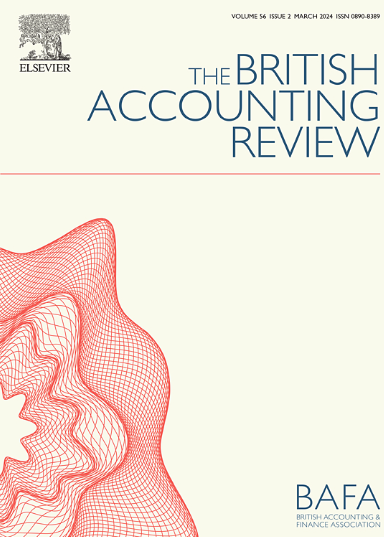两方面都要密切关注:执政党和政府领导人的联合条款对家族企业政府补贴的影响
IF 9.4
3区 管理学
Q1 BUSINESS, FINANCE
引用次数: 0
摘要
政治关系在家族企业获得政府补贴方面发挥了关键作用。然而,以往的研究并未关注执政党与政府之间政治关系的二元性。本文以党政领导人的共同条件为视角,分析了家族企业在寻求稳定和持续的补贴时如何解决这一双重问题。我们在2007年至2019年中国上市家族企业和地方领导层数据库的背景下检验了我们的理论。本文的实证研究表明,执政党和政府领导人的联合任期越长,家族企业政治关系的稳定性就越高,企业越有可能获得持续的政府补贴。在市场化程度较高的地区,这种效应明显减弱,因为资源配置逐渐从政府指令转向市场。因此,这些地区的家族企业必须在动态的制度变迁中寻求稳定的发展环境。在我们的研究中,我们扩展了关于新兴市场家族企业的政治关系和企业政治活动(CPA)的文献。本文章由计算机程序翻译,如有差异,请以英文原文为准。
Keep a watchful eye on both: The impact of the joint terms of ruling party and government leaders on family firm government subsidies
Political connections play a key role in family firms receiving government subsidies. However, previous research has not focused on the duality of the political connections between the ruling party and the government. Based on the joint terms of the party and government leaders, which constitutes a new perspective, we analyze how family firms address this duality as they seek stable and continuous subsidies. We test our theory in the context of Chinese listed family firms and local leadership databases between 2007 and 2019. In this empirical study, we demonstrate that longer joint terms for ruling parties and government leaders enhance the stability of family firms’ political connections and benefit enterprises that are more likely to receive continual government subsidies. This effect significantly weakens in regions in which marketization is more advanced because resource allocation gradually shifts from government mandates to the market. Therefore, family firms in such regions must adapt by seeking a stable developmental environment in the midst of dynamic institutional change. In our study, we expand the literature on political connections and the corporate political activity (CPA) of family firms in emerging markets.
求助全文
通过发布文献求助,成功后即可免费获取论文全文。
去求助
来源期刊

British Accounting Review
BUSINESS, FINANCE-
CiteScore
8.60
自引率
3.90%
发文量
39
审稿时长
76 days
期刊介绍:
The British Accounting Review*is pleased to publish original scholarly papers across the whole spectrum of accounting and finance. The journal is eclectic and pluralistic and contributions are welcomed across a wide range of research methodologies (e.g. analytical, archival, experimental, survey and qualitative case methods) and topics (e.g. financial accounting, management accounting, finance and financial management, auditing, public sector accounting, social and environmental accounting; accounting education and accounting history), evidence from UK and non-UK sources are equally acceptable.
 求助内容:
求助内容: 应助结果提醒方式:
应助结果提醒方式:


